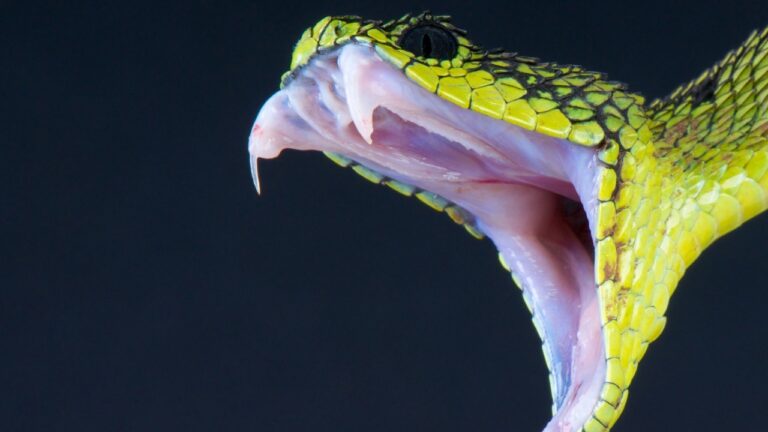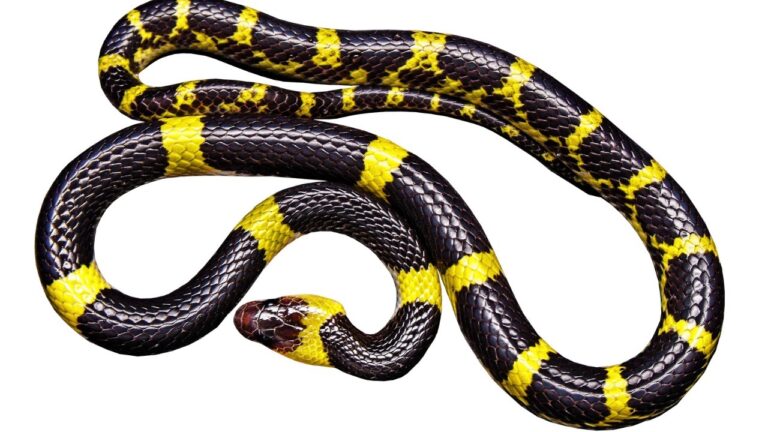Unlocking the Power of Snake Protein: Essential Nutrition for Reptiles
Importance of nutrition for reptiles
When it comes to the health and well-being of reptiles, nutrition plays a crucial role. Just like any other living creature, reptiles require a balanced diet to thrive. It is important for reptile owners to understand the significance of providing their scaly companions with the essential nutrients they need to maintain optimal health.
Proper nutrition for reptiles is essential for a variety of reasons. First and foremost, a well-balanced diet ensures that reptiles receive all the necessary macronutrients and micronutrients required for their growth, development, and overall bodily functions. These nutrients include proteins, carbohydrates, fats, vitamins, and minerals.
Proteins, in particular, are a vital component of a reptile’s diet. They are essential for muscle development, tissue repair, and immune function. In the case of snakes, protein is especially crucial as it provides them with the energy they need to sustain their unique hunting and digestive processes.
In the wild, snakes primarily feed on other animals, such as rodents, birds, and even other reptiles. These prey items are rich sources of protein, which allows snakes to thrive in their natural habitats. However, for reptiles kept in captivity, it is important for owners to carefully consider their diet and ensure they are receiving an appropriate amount of protein, along with other essential nutrients.
In the following sections, we will delve deeper into the importance of snake protein for reptiles, explore different sources of snake protein, discuss the importance of balancing protein with other nutrients, and provide feeding guidelines for reptile owners to ensure their scaly friends receive the nutrition they need to flourish.
So, let’s embark on this journey to unlock the power of snake protein and discover its significance in the world of reptile nutrition.
Snake Protein: An Essential Nutrient
When it comes to the nutritional needs of snakes, one cannot underestimate the importance of snake protein. This essential nutrient plays a vital role in the growth, development, and overall well-being of these fascinating reptiles. In this section, we will delve into the various aspects of snake protein, including its benefits, its role in growth and development, and its significance as a source of energy for snakes.
Overview of Snake Protein and Its Benefits for Snakes
Snake protein is a crucial component of a snake’s diet. It provides the necessary amino acids that are essential for the proper functioning of their bodies. These amino acids help in building and repairing tissues, supporting the immune system, and maintaining overall health. Additionally, snake protein aids in the production of enzymes and hormones, which are vital for various physiological processes.
Including snake protein in a snake’s diet offers a range of benefits. Firstly, it promotes healthy muscle development and maintenance, ensuring that snakes have the strength and agility they need to thrive in their natural habitats. Secondly, snake protein supports the development of strong bones and proper organ function, contributing to the overall well-being of these reptiles. Lastly, snake protein plays a crucial role in maintaining a healthy and robust immune system, enabling snakes to fend off diseases and infections more effectively.
How Snake Protein Aids in Growth and Development
For young snakes, proper growth and development are paramount. Snake protein plays a significant role in this crucial phase of their lives. The amino acids derived from snake protein are the building blocks for muscle tissue, allowing young snakes to develop strong bodies and acquire the necessary skills for survival. This nutrient also supports the development of vital organs, ensuring that young snakes grow into healthy adults. By including snake protein in their diet, snake owners can provide the optimal conditions for their pets’ growth and development.
Snake Protein as a Source of Energy
Snakes are fascinating creatures known for their remarkable ability to survive for extended periods without food. This ability is partially due to their metabolic adaptations, including the utilization of energy from snake protein. When snakes consume prey that is high in protein, their bodies break down the amino acids and convert them into energy. This energy is then utilized for various physiological processes, such as digestion, movement, and thermoregulation.
In addition to being a source of energy, snake protein also helps snakes maintain optimal body condition. While snakes do require a certain amount of fat in their diet, excess fat can lead to health issues. Protein, on the other hand, provides the necessary nourishment without the risk of excessive fat deposition. By including snake protein in their diet, snake owners can ensure that their pets maintain a healthy body composition.
Understanding the importance of snake protein in a snake’s diet is essential for snake owners. By providing their reptilian companions with the right balance of nutrients, including snake protein, owners can contribute to their pets’ overall health and well-being. In the next section, we will explore the various sources of snake protein available for reptiles, allowing snake owners to make informed decisions when it comes to their pets’ nutrition.
Continue reading: Sources of Snake Protein for Reptiles
Sources of Snake Protein for Reptiles
When it comes to ensuring the health and vitality of our scaly companions, providing them with a balanced and nutritious diet is of utmost importance. Reptiles, including snakes, have specific dietary requirements that need to be met in order for them to thrive. One essential nutrient that plays a crucial role in their overall well-being is snake protein.
Live Prey
In the wild, snakes are natural predators, relying on their hunting skills to capture and consume live prey. For reptile owners who wish to replicate this natural feeding behavior, offering live prey can be an option. This can include small rodents, such as mice or rats, or even insects like crickets or mealworms. The movement of live prey can stimulate a snake’s hunting instincts and provide them with mental and physical stimulation. However, it is important to ensure that the prey is of an appropriate size for your snake and poses no risk of injury.
Frozen Rodents
Frozen rodents are a popular and convenient choice when it comes to providing snake protein for reptiles. These frozen prey items, such as mice or rats, are readily available from pet stores or specialty suppliers. They offer a safe and easy way to meet your snake’s nutritional needs without the hassle of sourcing live prey. Frozen rodents can be thawed and offered to your snake, mimicking the natural feeding experience while minimizing the risk of injury to both the snake and the prey.
Commercial Reptile Diets
For reptile owners who prefer a more convenient and controlled approach to feeding, commercial reptile diets can be a viable option. These specially formulated diets are designed to provide a balanced and complete source of nutrition for snakes and other reptiles. Available in various forms, such as pellets or canned food, commercial reptile diets often contain a combination of proteins, vitamins, minerals, and other essential nutrients. It is important to choose a reputable brand and consult the packaging for specific feeding instructions and recommendations.
Supplements
In some cases, reptiles may require additional supplementation to ensure they are receiving adequate snake protein and other essential nutrients. Supplements can be used to complement a snake’s diet and address any potential deficiencies. These supplements are typically available in the form of powders or liquids and can be sprinkled or added to their food. However, it is important to note that supplements should never replace a balanced and varied diet. They should only be used under the guidance of a veterinarian or reptile nutrition specialist.
As with any aspect of reptile care, it is important to remember that each snake is unique, and their dietary needs may vary. It is crucial to consult a veterinarian or reptile specialist for guidance on the specific requirements of your snake, including the appropriate sources of snake protein. By providing a well-rounded and nutritionally balanced diet, you can ensure that your scaly friend enjoys a long and healthy life.
Continue reading: Balancing Snake Protein with Other Nutrients
Balancing Snake Protein with Other Nutrients
When it comes to the nutrition of reptiles, it’s not just about the protein content. Vitamins and minerals play a crucial role in a reptile’s diet, ensuring their overall health and well-being. While snake protein is an essential nutrient for snakes, it’s important to balance it with other necessary elements to create a balanced and nutritious diet for your scaly friend.
Vitamins are organic compounds that are required in small amounts for various metabolic processes in the body. They act as coenzymes, aiding in the proper functioning of enzymes and facilitating chemical reactions. Reptiles require a range of vitamins, including vitamin A, vitamin D, and vitamin E, among others. These vitamins are essential for maintaining healthy skin, promoting growth, supporting the immune system, and aiding in reproduction. Minerals, on the other hand, are inorganic substances that are necessary for various physiological processes, such as bone formation, nerve transmission, and muscle contraction. Calcium, phosphorus, and magnesium are some of the minerals that reptiles need in adequate amounts to maintain optimal health.
In addition to vitamins and minerals, a varied diet is crucial for reptiles. Offering a variety of prey items ensures that your snake receives a wide range of nutrients, as different prey items contain varying amounts of proteins, fats, vitamins, and minerals. This diversity helps prevent any potential deficiencies or imbalances in their diet. Just like humans, reptiles benefit from a well-rounded meal plan, and a monotonous diet can lead to health issues over time.
While it’s important to have a basic understanding of reptile nutrition, it’s always a good idea to consult a veterinarian who specializes in reptiles for proper guidance. They can assess your snake’s specific needs based on its species, age, size, and overall health. A veterinarian can help you create a customized diet plan that ensures your snake gets all the necessary nutrients to thrive.
Remember, a balanced diet is key to maintaining your reptile’s optimal health. By providing the right amount of snake protein along with the necessary vitamins, minerals, and a varied diet, you’ll be supporting their growth, development, and overall well-being. So, take the time to learn about your snake’s nutritional needs, consult professionals when needed, and enjoy the rewarding experience of caring for these fascinating creatures.
For more information on snake nutrition and feeding guidelines, check out our detailed guide on snake feeding.
Feeding Guidelines for Reptile Owners
When it comes to feeding your reptile, determining the appropriate amount of snake protein is crucial for their overall health and well-being. As a responsible reptile owner, it’s your duty to provide them with a balanced diet that meets their nutritional needs. Understanding the frequency of feeding and monitoring their diet based on their health and behavior is key to ensuring their optimal nutrition.
Determining the Appropriate Amount of Snake Protein for Your Snake
Every snake species has its own dietary requirements, so it’s important to research the specific needs of your snake. The amount of snake protein they require will depend on factors such as their age, size, and activity level. Generally, snakes require a diet that consists primarily of protein-rich foods, with snake protein being a vital component.
To determine the appropriate amount of snake protein for your snake, consult reputable sources such as snake diet guides or seek advice from a qualified reptile veterinarian. They can provide you with tailored recommendations based on your snake’s individual needs.
Frequency of Feeding
The frequency of feeding your snake will also vary depending on their species and age. Younger snakes typically require more frequent meals compared to adult snakes. In general, most snakes are fed every 5 to 7 days, but this can vary. It’s important to establish a consistent feeding schedule to ensure your snake receives the nutrients they need.
It’s worth noting that some snakes have specific feeding behaviors and may prefer to eat smaller meals more frequently. Others may require larger meals less often. Understanding your snake’s feeding preferences and adapting their feeding schedule accordingly is essential.
Monitoring and Adjusting the Diet Based on the Snake’s Health and Behavior
Regularly monitoring your snake’s health and behavior is crucial in maintaining a balanced diet. Keep an eye out for any signs of malnutrition, excessive weight gain, or other health issues. If you notice any changes in their appetite, digestion, or overall demeanor, it may indicate a need to adjust their diet.
It’s important to remember that a snake’s nutritional needs may change as they grow and develop. Adjustments to their diet may be necessary to ensure they are receiving the right balance of nutrients. Consulting a reptile veterinarian can provide valuable guidance in assessing your snake’s nutritional requirements and making any necessary adjustments.
By following these feeding guidelines and staying attentive to your snake’s needs, you can provide them with a healthy and balanced diet. Remember, proper nutrition is essential for their growth, development, and overall well-being. For more information on snake nutrition, consider referring to our comprehensive snake feeding guide.
Conclusion
In conclusion, understanding the importance of nutrition for reptiles, particularly snakes, is crucial for their overall health and well-being. Snake protein, being an essential nutrient, plays a vital role in the growth, development, and energy requirements of these fascinating creatures.
By incorporating snake protein into their diet, snake owners can provide their scaled companions with the necessary building blocks for healthy muscle development and tissue repair. Snake protein serves as a valuable source of energy, helping snakes thrive in their natural habitat or captivity.
When it comes to sourcing snake protein for reptiles, there are several options available. Live prey, such as mice or rats, can be a suitable choice for owners who prefer a more natural feeding approach. Frozen rodents offer a convenient alternative, ensuring the safety and nutritional value of the prey while minimizing potential risks associated with live feeding.
Additionally, commercial reptile diets formulated with snake protein provide a balanced and convenient option for reptile owners. These diets are specifically designed to meet the nutritional needs of snakes, offering a reliable source of essential nutrients. Supplements can also be utilized to enhance the nutritional profile of snake diets, ensuring that all dietary requirements are met.
While snake protein is essential, it is crucial to balance it with other vital nutrients. Vitamins and minerals play a crucial role in a reptile’s diet, supporting various bodily functions and promoting overall health. A varied diet that includes a range of prey items can help ensure that snakes receive a diverse array of nutrients necessary for their well-being.
As with any aspect of reptile care, consulting a veterinarian specializing in exotic animals is highly recommended. They can provide valuable guidance on proper nutrition, tailoring a diet plan to meet the specific needs of your snake. Regular check-ups and monitoring of your snake’s health and behavior will also help you make adjustments to their diet as necessary.
In conclusion, unlocking the power of snake protein is key to providing essential nutrition for reptiles, particularly snakes. By understanding the importance of snake protein and incorporating it into their diet, owners can contribute to the overall well-being and longevity of their scaled companions. So, whether you’re a seasoned snake owner or a new enthusiast, make sure to prioritize your snake’s nutrition to support their thriving and vibrant life.







